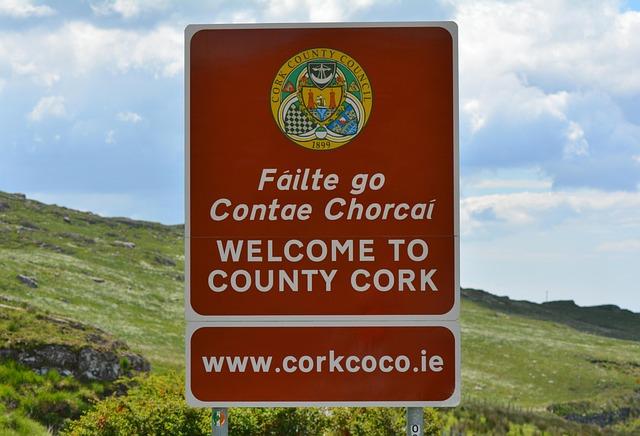In a striking development that has implications for the scientific community in Norway, a coalition of researchers and academics has publicly opposed the country’s controversial language law, which mandates the use of Norwegian in certain academic and scientific contexts. As Norway positions itself as a leading hub for research and innovation, critics warn that this legislation may inadvertently drive away international talent and undermine the collaborative spirit essential for groundbreaking scientific advancements. This article explores the key concerns raised by these scientists, delves into the potential consequences for Norway’s research landscape, and examines the broader implications for language policy in academia. With the global scientific community keeping a close eye on the situation, the debate highlights the delicate balance between national identity and the inclusive practices that foster creativity and progress in research.
Understanding norways Language Law and Its Implications for Science

The recent language law in Norway has sparked significant debate within the scientific community, with many researchers voicing concerns over its potential impact on the nation’s academic and research landscape. Proponents argue that the law aims to promote the Norwegian language, ensuring its vitality and use in higher education. However, critics warn that mandating Norwegian could deter international researchers and students, who may be unwilling or unable to navigate bureaucratic and academic processes conducted exclusively in a language that is not their own. this could exacerbate the existing challenges of talent retention and innovation within the country.
Key implications of Norway’s language law for the scientific community include:
- Talent Exodus: The requirement for proficiency in norwegian may push foreign scientists to seek opportunities in more linguistically inclusive countries.
- Research Collaboration: Multinational projects could suffer, as language barriers may inhibit effective interaction and collaboration among diverse research teams.
- Funding and Grants: Access to certain grants may become restricted if applicants must demonstrate proficiency in Norwegian, effectively narrowing the pool of eligible researchers.
| Concerns | Potential Outcomes |
|---|---|
| Increased Language Barriers | Reduced Diversity in Research |
| Limited Access to International Talent | Stagnation in Scientific Progress |
| Shift in Academic Focus | Neglect of Global Perspectives |
The Concerns of Researchers: Potential Brain Drain and Talent Exodus

Researchers express deep concern over Norway’s language law, fearing it may trigger a significant brain drain as talented scientists consider leaving the country. They argue that the mandatory use of the Norwegian language in academic settings could alienate non-Norwegian-speaking researchers and create an inhospitable surroundings for international collaboration. This situation may lead to a detrimental shift where NorwayŌĆöknown for its robust research funding and outstanding educational institutionsŌĆöloses its competitive edge in the global science landscape.
Experts highlight several potential consequences of this policy that could exacerbate talent exodus:
- Reduced Collaboration: International partnerships may diminish as non-Norwegian researchers feel reluctant to engage.
- talent Retention Issues: Students and professionals who are fluent in English may opt for opportunities in more inclusive environments.
- Innovation Stagnation: The influx of diverse perspectives that drives innovation could dwindle, hampering scientific progress.
In response to these concerns, a recent survey conducted among research institutions indicates a troubling trend:
| Concerns | percentage of Researchers Affected |
|---|---|
| Consider leaving Norway | 42% |
| Reduced collaboration opportunities | 38% |
| Impediments to attracting new talent | 57% |
| Innovation potential at risk | 45% |
This data illustrates an urgent call for policymakers to reassess the implications of such language laws on the research community and to ensure that Norway remains a welcoming environment for scientific inquiry and discovery.
Bilingualism and Access: Navigating Scientific Collaboration in Norway

Bilingualism plays a crucial role in fostering scientific collaboration, particularly in a multicultural landscape like Norway. With an increasing number of researchers from diverse linguistic backgrounds, the ability to communicate effectively in multiple languages is more important than ever. Norwegian legislation mandating the use of the national language in various public spheres presents a significant challenge. This has raised concerns among scientists regarding equitable access to collaborative opportunities, particularly for those who may not be fluent in Norwegian. Consequently, international researchers may feel compelled to seek positions in countries with less stringent language laws, thereby threatening the diversity and breadth of expertise within Norway’s scientific community.
To mitigate the potential fallout from language policies, institutions can adopt strategies aimed at promoting inclusivity and multilingualism. Some effective measures include:
- Language support programs: Offering language courses for international researchers can enhance their integration.
- Bilingual publications: Encouraging scientific papers and presentations in both Norwegian and English can broaden audience reach.
- Cultural exchange initiatives: Hosting events that celebrate linguistic diversity can foster a more collaborative environment.
By embracing a bilingual approach, Norway can not only retain its top talent but also attract new researchers eager to engage in scientific advancements. Addressing these language barriers is essential for enhancing Norway’s reputation as a global hub for research and innovation.
Recommendations for Policymakers: Balancing Language Requirements with Inclusivity

Policymakers need to consider the intricate balance between enforcing language requirements and fostering an inclusive environment that attracts and retains global talent.To achieve this, it is imperative to implement policies that recognize the diverse linguistic backgrounds of scientists and researchers. By considering adjustments in language regulations, the following strategies could be pivotal:
- Flexible Language Proficiency Standards: Establish varying levels of language proficiency that reflect the roles and sectors within academia and research, thereby accommodating non-native speakers without compromising quality.
- Multilingual Environments: Encourage organizations and educational institutions to adopt multilingual policies that enable communication in both local languages and international tongues, facilitating smoother collaboration.
- Language Support Programs: Invest in programs that assist international talent with language training and adaptation to the local linguistic landscape in a supportive manner.
Additionally, it may be beneficial to assess the impact of language regulations on the broader research ecosystem through complete data analysis. Implementing a periodic review process to evaluate these regulations could provide valuable insights. The following table summarizes potential metrics for policymakers to consider:
| Metric | Description | Potential Impact |
|---|---|---|
| Talent Retention Rate | Percentage of international researchers who remain in Norway. | Higher rates indicate accomplished inclusivity. |
| Language Proficiency Levels | Distribution of language skills among the workforce. | Reflects the effectiveness of support programs. |
| Collaboration Frequency | Number of collaborative projects between local and international teams. | Indicates the effectiveness of multilingual policies. |
Voices from the Field: Testimonials from Scientists Affected by the law

In a climate where research talent is increasingly globalized, scientists in Norway have begun to voice their concerns about the newly enacted language law, fearing it poses a threat to their professional freedom and international collaboration. Renowned physicist Dr. Lars Jensen stated, ŌĆ£This law adds an additional barrier for foreign researchers, who may feel unwelcome or discouraged from applying for positions. ItŌĆÖs about more than just language; itŌĆÖs about creating an inclusive environment that fosters innovation.ŌĆØ Many researchers echo this sentiment, including biologist Dr.Mette Haugland, who passionately remarked, ŌĆ£Diversity drives discovery. If we restrict communication to just one language, we risk stifling potential breakthroughs that could change our world.ŌĆØ
moreover, anecdotal evidence suggests that several highly skilled researchers are reconsidering their tenure in Norway due to the new regulations. A recent survey revealed that:
| Reason for leaving | percentage of Respondents |
|---|---|
| Language Barrier | 57% |
| Lack of Support for non-Native Speakers | 35% |
| Desire for International Collaboration | 72% |
This data demonstrates a growing discontent among the research community, as many feel that their ability to contribute to global science is diminished by the law. The need for an adaptable approach to language in academic settings has never been more urgent, as researchers strive to maintain Norway’s reputation as a leading center for innovative science.
The Future of Scientific Innovation in Norway: Addressing Language Barriers

In recent years, the Norwegian government’s emphasis on promoting the Norwegian language has raised concerns among the scientific community. Researchers argue that stringent language requirements could hinder Norway’s position as a hub for global scientific innovation.Many fear that if non-Norwegian speakers feel alienated, norway may lose a significant portion of its talent pool, particularly in fields where international collaboration is crucial. The current trend suggests that a shift towards a more multilingual academic environment is not just desirable, but necessary to foster inclusivity and enhance research output.
Addressing language barriers requires a multifaceted approach, which can include:
- Multilingual Publications: Encouraging research output in multiple languages to reach a broader audience.
- International Collaborations: Partnering with global institutions to share knowledge without language constraints.
- Language Support Programs: Offering language training and resources for researchers to communicate effectively.
By prioritizing these strategies, Norway can create a more vibrant and diverse scientific landscape, one where ideas can flow freely without the limitations imposed by a single language.As the nation looks to the future, embracing a global viewpoint will be key to sustaining scientific advancement and attracting the best minds from around the world.
In Retrospect
the ongoing debate surrounding Norway’s language law underscores a critical intersection of policy, academia, and talent retention. As scientists voice their concerns about the potential for a talent exodus, the implications of this legislation extend beyond individual researchers to the very fabric of Norway’s scientific community. The loyalty of international scholars is at stake, with many warning that the requirement to communicate primarily in Norwegian could deter global talent from contributing to Norway’s robust research landscape.As stakeholders navigate the complexities of maintaining a culturally rich yet scientifically vibrant environment, the outcome of this discourse will undoubtedly shape the future of NorwayŌĆÖs position in the global scientific arena. Moving forward, it remains essential for policymakers to balance linguistic heritage with the imperative of fostering an inclusive and diverse academic environment, ensuring that the nation continues to attract and retain the brightest minds from around the world.
















